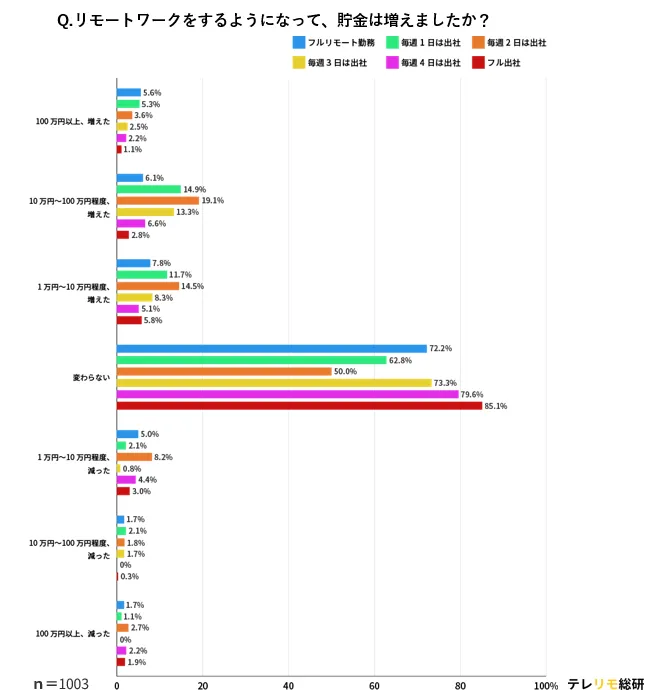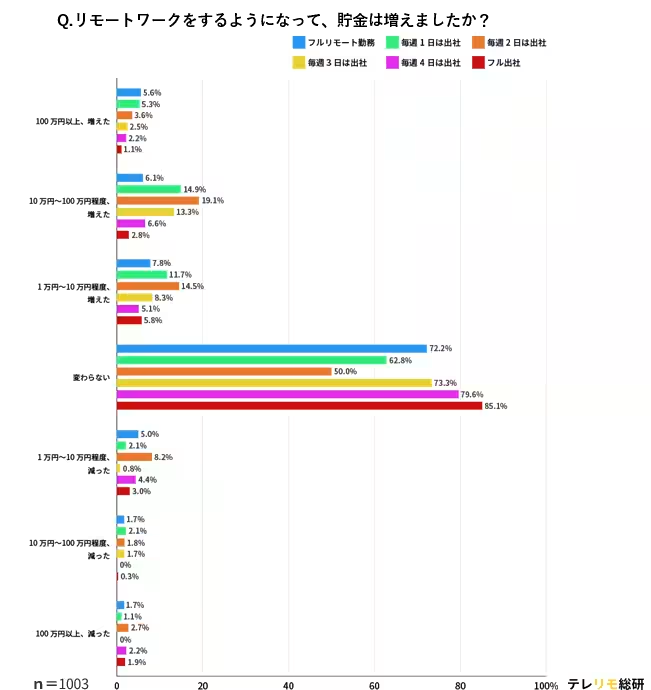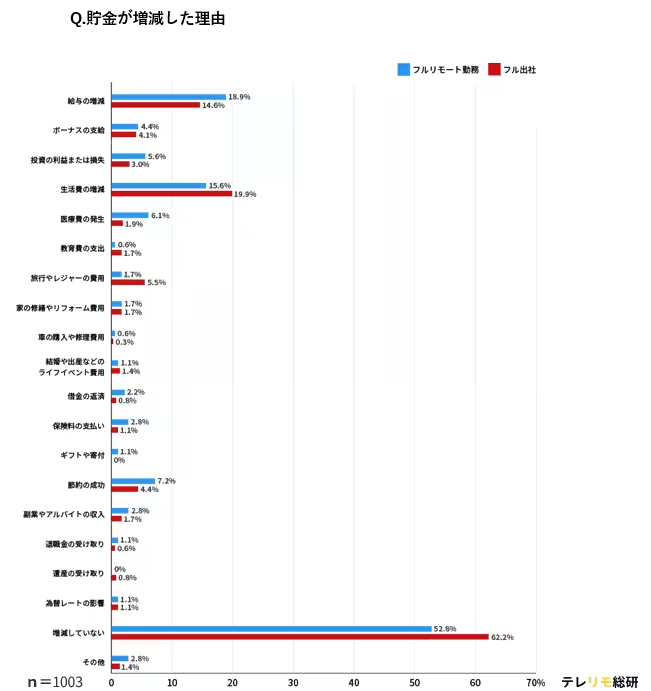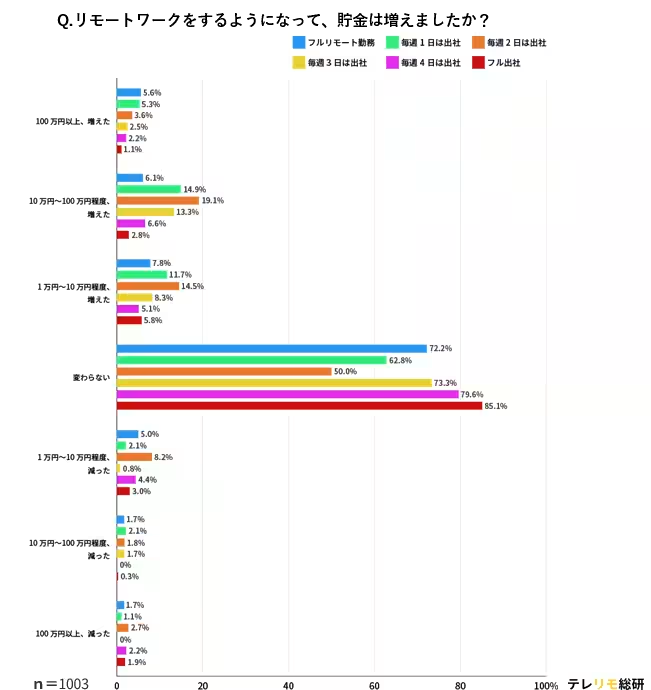

Exploring the Impact of Remote Work on Savings: What the Data Reveals
Exploring the Impact of Remote Work on Savings: What the Data Reveals
As remote work becomes more prevalent, its influence on savings and financial stability is gaining attention. A recent survey conducted by LASSIC, a Japanese company promoting remote working styles through their web media, the Telework & Remote Work Research Institute, delved into this very topic—"The Relationship Between Remote Work and Savings."
In a climate where inflation and rising costs of living, such as exorbitant rice prices and increased taxes, dominate the news, many individuals are contemplating their financial futures and how to save effectively. With this in mind, LASSIC carried out its research to understand the connection between remote work and savings habits.
How Do Savings Vary Between Remote and In-Person Work?
The COVID-19 pandemic has reshaped the working landscape, with a significant portion of the workforce experiencing remote work first-hand. However, a return to traditional office settings has been observed lately, though approximately 20% of professionals continue to work fully remote. This leads to an intriguing question: does the mode of working influence one's ability to save?
After surveying around 1,000 business professionals, LASSIC found that 18% worked fully remote, aligning closely with broader statistics. While many survey respondents reported that their savings remained unchanged, an interesting trend emerged regarding those who stated their savings had increased. Specifically, those who reported saving over 1 million yen correlated strongly with their level of remote working. As days worked remotely increased, so did the likelihood of significant savings.
In fact, the data indicated that respondents working remotely had higher odds of reporting substantial savings than those returning to the full office environment.
The Financial Edge of Being Fully Remote
Within the group that reported savings above 1 million yen, deeper analysis showed a clear distinction between those working fully remote and those in traditional setups. One crucial factor is related to additional income from side jobs or part-time jobs, which was found to be more prevalent among full-time remote workers.
The statistics from Japan's Ministry of Internal Affairs reveal that the average round-trip commute in metropolitan areas is about 1 hour and 40 minutes. This accumulates to nearly 33 hours a month, translating into approximately 400 hours annually—time that might otherwise be utilized for side ventures. IT professionals, for example, could potentially earn an additional 1.2 million yen annually by leveraging this time to acquire new skills or take on side gigs.
The Challenges of Saving for In-Person Workers
Interestingly, those who identified as being successful at saving were predominantly remote workers. Contributing factors included decreased spending on meals out and snacks, common costs for those commuting to work. In contrast, commuting can lead to additional expenses, from lunches to coffee and other small purchases that mount over time.
Working from home allows for cost-effective meal preparation and diminishes incidental expenses associated with being out.
Unexpected Health Costs for Remote Workers
Another surprising finding from the survey was regarding medical expenses. A higher proportion of remote workers reported incurring medical costs. This might raise questions about whether remote work leads to more health issues, but the reality could be quite the opposite; remote work can offer greater flexibility for medical visits. The absence of commuting means remote workers often have more opportunities to seek medical assistance when unwell rather than pushing through a workday.
Planning for Future Financial Stability
The survey results reflect ongoing economic concerns, as domestic consumer price indices indicate a 10% rise compared to a decade ago, without a corresponding increase in average earnings—reportedly just up about 10% as well. The observed increase in social insurance fees further pressures household finances, complicating any ambition to save.
Thus, establishing a working style that aligns with one’s lifestyle while ensuring avenues for savings—whether through remote work or other means—becomes crucial. As individuals navigate economic uncertainties, adopting strategies for side income or cutting unnecessary expenses makes practical sense.
Survey Overview
- - Survey Period: April 8 - April 16, 2025
- - Participants: 1,003 working individuals aged 20-65 with remote work experience
- - Method: Online survey
In conclusion, as future economic burdens evolve, it will be essential for individuals to choose work styles that complement their financial goals. Remote work shows promise not just for flexibility but also for enhancing savings potential. LASSIC remains committed to facilitating and promoting such employment frameworks to foster innovative financial strategies in an ever-changing world.



Topics Business Technology)










【About Using Articles】
You can freely use the title and article content by linking to the page where the article is posted.
※ Images cannot be used.
【About Links】
Links are free to use.